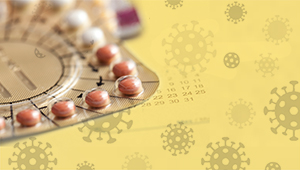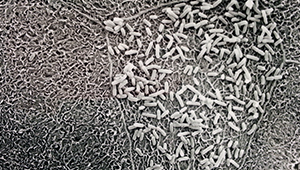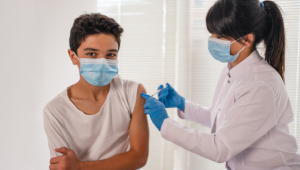Vaccines & Infectious Diseases
Research overview
Vaccines save lives by protecting people against infectious diseases — polio, influenza, and pneumonia to name a few. Kaiser Permanente Washington Health Research Institute (KPWHRI) is working to protect communities through research to continually improve the safety and effectiveness of vaccines for infectious diseases of public health importance.
Central to this work is testing new vaccines against emerging diseases — such as COVID-19. In March 2020, KPWHRI gave the world’s first-ever injection of an investigational vaccine for COVID-19 in a phase 1 clinical trial led by Senior Investigator Lisa A. Jackson, MD, MPH. We continue to be at the forefront of efforts to understand and combat COVID-19. To learn more, see COVID-19 research at KPWHRI.
Successes over 3 decades of KPWHRI vaccine research include:
- A large study of flu vaccination in seniors that found that the vaccine might not protect them from pneumonia as well as hoped
- A “real-time” evaluation of the safety of the shingles vaccine in older adults across the Vaccine Safety Datalink network
- Clinical trials of investigational flu vaccines, including ones against pandemic flu and bird flu, in adults
- Studies to better understand and address vaccine hesitancy among families who delay or refuse to vaccinate their children because of safety fears, leading to outbreaks of potentially deadly illnesses such as whooping cough and measles
- The biggest retrospective study of pneumococcal polysaccharide vaccine effectiveness in adults, and the largest clinical trial on the safety of this vaccine
- The pivotal clinical trials of 7-valent, 13-valent, and 20-valent pneumococcal conjugate vaccines in older adults
Our current research projects on vaccines and infectious diseases include:
- Clinical trials conducted by the Vaccine and Treatment Evaluation Unit, funded by the National Institute of Allergy and Infectious Diseases, and part of the Infectious Disease Clinical Research Consortium (IDCRC). Led by Dr. Lisa Jackson, the unit launched the world’s first trial of an experimental COVID-19 vaccine — the now-approved NIH-Moderna vaccine — and continues to test the safety and effectiveness of COVID-19 vaccines and boosters. To learn more, see COVID-19 research at KPWHRI.
- Studies of how infectious diseases such as COVID-19 and influenza spread through communities
- Research to explore what types of communication and community engagement strategies are most effective at improving COVID-19 vaccine uptake among workers in long-term care facilities. Clarissa Hsu, PhD, is leading this research, which is being funded by a $4.75 million award from the Patient-Centered Outcomes Research Institute (PCORI).
- Ongoing monitoring of the effectiveness of the influenza and COVID-19 vaccines by the U.S. Influenza Vaccine Effectiveness Network, led by Karen J. Wernli, PhD, KPWHRI senior investigator, and funded by the CDC (Centers for Disease Control and Prevention)
- Studies of immunization safety through the Vaccine Safety Datalink project, supported by the CDC and connecting information in large databases maintained by 8 American health plans including Kaiser Permanente Washington
- Methodological research, led by Jennifer C Nelson, PhD, and Andrea J. Cook, PhD, to improve the statistical design and analysis approaches used to address vaccine safety questions in electronic health record data settings
Recent publications on Vaccines & Infectious Disease
Jackson LA, Dunstan M, Starkovich P, Dunn J, Yu O, Nelson JC, Rees T, Zavitkovsky A. Prophylaxis with acetaminophen or ibuprofen for prevention of local reactions to the fifth diphtheria-tetanus toxoids-acellular pertussis vaccination: a randomized, controlled trial. Pediatrics. 2006;117(3):620-5. PubMed
Chi RC, Jackson LA, Neuzil KM. Characteristics and outcomes of older adults with community-acquired pneumococcal bacteremia. J Am Geriatr Soc. 2006;54(1):115-20. PubMed
Jackson LA, Nelson JC, Benson P, Neuzil KM, Reid RJ, Psaty BM, Heckbert SR, Larson EB, Weiss NS. Functional status is a confounder of the association of influenza vaccine and risk of all cause mortality in seniors. Int J Epidemiol. 2006;35(2):345-52. Epub 2005 Dec 20. PubMed
Jackson LA, Jackson ML, Nelson JC, Neuzil KM, Weiss NS. Evidence of bias in estimates of influenza vaccine effectiveness in seniors. Int J Epidemiol. 2006;35(2):337-44. Epub 2005 Dec 20. PubMed
Jackson LA, Nelson JC, Whitney CG, Neuzil KM, Benson P, Malais D, Baggs J, Mullooly J, Black S, Shay DK. Assessment of the safety of a third dose of pneumococcal polysaccharide vaccine in the Vaccine Safety Datalink population. Vaccine. 2006;24(2):151-6. Epub 2005 Aug 22. PubMed
Researchers in Vaccines & Infectious Disease
 Andrea J. Cook, PhDSenior Biostatistics Investigator |
 Sascha Dublin, MD, PhDSenior Investigator |
 Clarissa Hsu, PhDAssociate Investigator |
 Noorie Hyun, PhDAssociate Biostatistics Investigator |
 Lisa A. Jackson, MD, MPHSenior Investigator |
 Jennifer C. Nelson, PhDDirector, Biostatistics; Senior Investigator |
 Pamela A. Shaw, PhD, MSSenior Biostatistics Investigator |
 Robert D. Wellman, MSPrincipal Collaborative Biostatistician |
 Brian D. Williamson, PhDAssociate Biostatistics Investigator |
 Onchee Yu, MSPrincipal Collaborative Biostatistician |
Affiliate researchers
Doug Opel, MD, MPH
University of Washington (UW) Department of Bioethics and Humanities; UW Department of Pediatrics; UW Medical Center
Adjunct researchers
John Dunn, MD, MPH
Kaiser Foundation Health Plan of Washington
Elizabeth Lin, MD, MPH
Kaiser Foundation Health Plan of Washington Family Practice;
Kaiser Permanente Washington Health Research Institute











